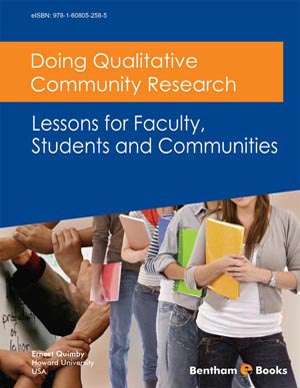Abstract
Research theory and practice are interrelated. Qualitative, quantitative and mixed methods approaches have distinct features. Neither is ‘better’ than the other. Either-or arguments are misleading and distracting. Qualitative approaches emphasize perceptions and meanings. They are concerned with constructing, describing, representing and interpreting social reality. Teaching about qualitative research theory and practice entails developing and applying qualitative research pedagogies. Competing assumptions exist regarding teaching and learning qualitative research. These have implications for teachers and students. The assumption that learning derives from interaction implies that teachers are facilitators of knowledge, rather than experts who transfer knowledge. Understanding characteristics of qualitative research promotes effective teaching approaches. This chapter is an overview of qualitative research’s value and distinctiveness. Major pedagogical goals, necessary students’ skills and related teaching issues are highlighted. Reducing fear-based teaching, tension-filled learning and anxiety-ridden assessments helps encourage a willingness to venture beyond preconceived categories and step into the community in new ways. Interactive classroom and field learning strategies engage students. Creating classroom-community relationships enhances teaching and learning. Teaching requires conceptual and methodological rigor. Setting and achieving meaningful teaching objectives are assisted by linking instruction and qualitative community research (QCR). Purposeful and clear assessments improve teaching. Their utility is affected by explicit questioning of assessments purposes, goals, objectives, existent resources, types, strategies and results. Teaching involves thinking about data, as well as obtaining, organizing, summarizing, comprehending, analyzing and presenting information. Instruction obligates the instructor to self-reflect about thematic goals for teaching and learning QCR. The chapter concludes with a field assignment.
Keywords: Theory and Practice, Overview of Quantitative, Qualitative and Mixed Methods, Pedagogy, Goals, Skills, Considerations, Issues.













